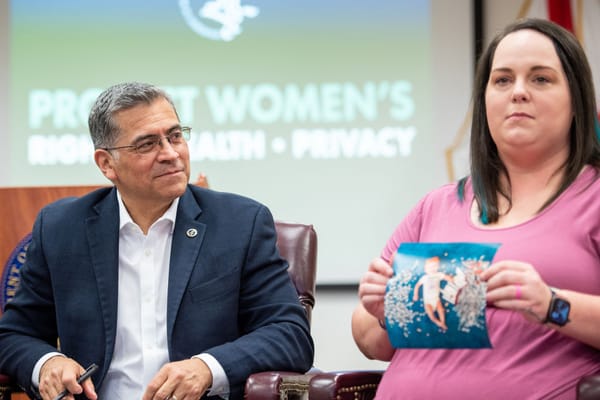How Stork Club Can Help
As access to medication abortion — the most commonly used method of unwanted pregnancy termination in the US — plunged into uncertainty with the order issued by the US District Judge Matthew Kacsmaryk, we want to share why such access is critical to maintaining physical, emotional, and financial safety and how Stork Club can help.
What is medication abortion?
Medication abortion is the process of ending a pregnancy through medication. This method involves taking two separate medications in sequence. The initial medication, mifepristone, stops the pregnancy's progression, while the second drug, misoprostol, causes uterine contractions that help the body to expel the pregnancy tissue. Medication abortion was used in 54% of all abortions in the US in 2020.
Is medication abortion safe?
The FDA has approved the utilization of mifepristone and misoprostol to terminate pregnancies up to 10 weeks, although clinical guidelines permit their use up to 11 weeks.
An analysis of 87 clinical trials shows that medication abortion is safe, with serious complications requiring hospitalization (for vaginal bleeding, pelvic pain, or infection) occurring in less than 0.3% of patients. Approximately 0.1% of patients required a blood transfusion. The conclusion of the analysis was: early medical abortion with mifepristone 200 mg followed by misoprostol is highly effective and safe.
Additionally, in March 2022, the WHO released updated guidelines consolidating the current evidence and best practices for the provision of quality abortion care, which, for the first time, include self-management of medical abortion as a fully recommended model of abortion care.
How can the abortion pill ban negatively impact maternal health?
Access to safe abortions: In Western nations, 3% of abortions are unsafe (ion). An unsafe abortion is defined as “a procedure for terminating an unintended pregnancy carried out either by persons lacking the necessary skills or in an environment that does not conform to minimal medical standards or both.” Abortion pills are a safe, effective, and private option for women seeking to terminate pregnancies, especially in the first trimester. Restricting access to these pills could lead women to seek unsafe or unregulated alternatives, putting their health and lives at risk.
Unwanted pregnancies: In 2011, 18% of pregnancies in the US were "unwanted". Unintended pregnancy rates are highest among low-income women, women aged 18–24, cohabiting women, and women of color. Prohibiting abortion pills could lead to an increase in the number of unintended pregnancies carried to term. This may lead to physical, emotional, financial, and health strain for the women who are already in a risk category: people of color, low or no income.
Mental health: While multiple studies show that obtaining a wanted abortion does not increase the risk for depression, anxiety, or suicidal thoughts, the lack of access to a wanted abortion does pose such a risk. Restricting access to abortion pills can have negative consequences on women's mental health, as they may be forced to carry unwanted pregnancies to term or seek illegal, potentially unsafe methods of terminating their pregnancies.
Disproportionate impact on marginalized groups: Prohibiting abortion pills may disproportionately impact low-income individuals and communities of color, who may have limited access to other abortion services. This could exacerbate existing health disparities and further strain healthcare systems in underserved areas, in addition to the ongoing maternity healthcare crisis in the US.
Delay in care: Nearly all abortions (93.1%) in 2020 in the US were performed at ≤13 weeks. Early medical abortion is defined as the administration of medication(s) to induce an abortion at ≤9 weeks, consistent with the current FDA labeling for mifepristone (implemented in 2016). Prohibiting abortion pills may result in delays in accessing abortion care, leading women to undergo later abortions, which are associated with higher medical risks, banned procedures in many states of the US, and a higher cost of healthcare.
Overburdened healthcare system: Restricting access to abortion pills could lead to an increased reliance on in-clinic abortions, which may strain healthcare providers and resources. This could also have negative consequences for the overall quality of maternal healthcare, especially for women of color who are already affected the most.
Loss of autonomy: Women's autonomy and decision-making power regarding their reproductive health are essential aspects of maternal health. Restricting access to abortion pills undermines this autonomy, which can have long-lasting psychological and emotional consequences.
How Stork Club can help support your teams
At Stork Club, we believe that reproductive care is a human right, and every person has a right to have access to high-quality medical providers to achieve their goals on their reproductive journey for their personal well-being. Access to critical reproductive care became an important social determinant of health, and Stork Club is here to support employers and their people to keep them healthy.
Here are two ways we can help today:
Cover travel to access care. Providing coverage for travel to receive necessary reproductive care, which is not available for your people locally, can help your people access high-quality reproductive care while being supported by our Care Navigators on the entire sensitive journey. The Stork Club Travel Reimbursement Program is the only program on the market that covers travel for any reproductive healthcare that is unavailable in a member’s area. Members traveling to a different state for high-performance fertility clinics or expert care for LGBTQ+ members building a family get the same reimbursements as members accessing a pregnancy termination provider.
Cover medication abortion. Ask your health plan team if medications mifepristone and misoprostol are currently covered to provide access to medication abortion for your team. If such medications are not covered, contact Stork Club to enable coverage.
If mifepristone is banned in the US (currently ongoing legal case as FDA plans to appeal in court), abortion providers nationwide say they've been preparing to rely on using misoprostol alone. Misoprostol is prescribed primarily for ulcers and is already widely used off-label for other gynecological purposes in the United States. The WHO declares that the single-drug regimen has been used internationally for decades, and can be safe and effective at the appropriate dosage.
To learn more about how to give your employees the options of reproductive support, click here.
Each week Stork Club tackles industry insights on fertility, workplace inclusion & DEI initiatives.




